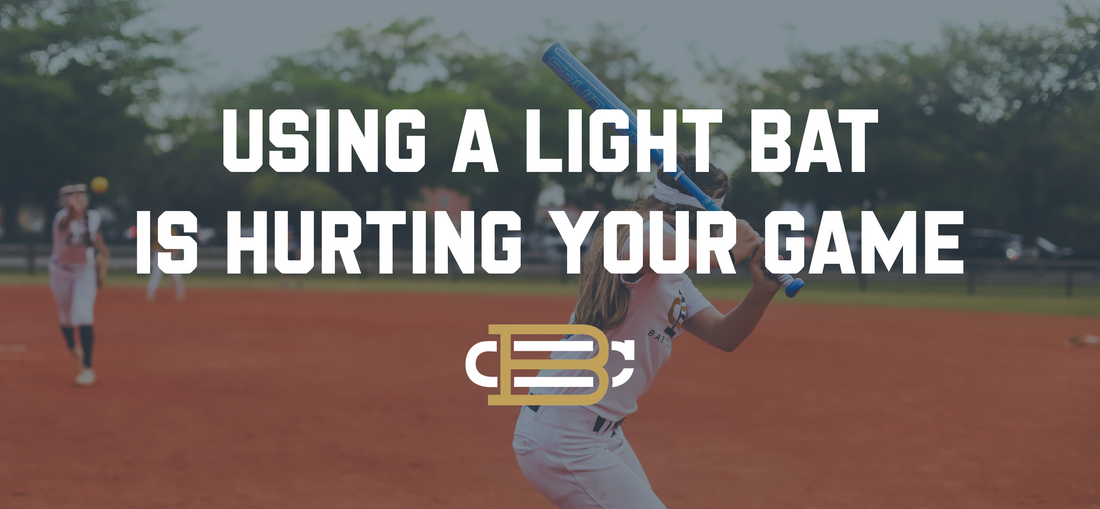
Using a Light Bat Is Hurting Your Game
Share
Having a bat that is too light can have several negative effects on a player's performance in baseball or softball. Here are a few reasons why it is generally considered bad to have a bat that is too light:
- Reduced Power: A lighter bat lacks mass, which can result in reduced power when hitting the ball. The weight of the bat contributes to the momentum and force generated during the swing. With a lighter bat, the transfer of energy to the ball may be compromised, leading to weaker hits and decreased distance.
- Poor Timing and Control: The balance and feel of a bat play a significant role in a player's ability to time their swing and control the bat's path through the hitting zone. If a bat is too light, it can be challenging to maintain proper control and timing, leading to mistimed swings, inconsistent contact, and a decrease in overall batting performance.
- Increased Risk of Hand and Wrist Injuries: When using a bat that is significantly lighter than what a player is accustomed to, there is a risk of overcompensating by swinging harder or altering their mechanics. This can put extra strain on the hands, wrists, and even the arms, potentially leading to injuries such as tendonitis or stress fractures.
- Difficulty Adjusting to Heavier Bats: If players become accustomed to using a bat that is too light, they may struggle when transitioning to a heavier bat. The change in weight distribution and swing mechanics can disrupt their timing and swing path, requiring an adjustment period to adapt to the new bat.
It's worth noting that the ideal weight of a bat can vary depending on factors such as a player's strength, skill level, and personal preference. Finding the right bat weight that allows for optimal performance and comfort is crucial for each individual player. The best way to determine this is to try as many bats as possible with a Bat Club USA subscription.

